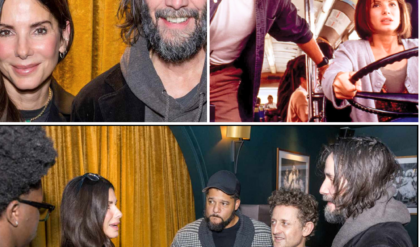Streaming giant Netflix is facing criticism over a controversial Emily in Paris scene, which many viewers have argued is culturally insensitive. The second season of the hit show premiered last month, and while some fans were eager to see Emily and the gang back on their screens, others took to socials to call out the series over cultural stereotypes.
ICYMI, in season two we meet Petra (played by Daria Panchenko), a Ukranian living in Paris whom Emily meets during French class. But their budding friendship turns sour when Petra encourages Emily to shoplift clothes and accessories while they’re out shopping – leading to widespread upset from viewers.
“Why did Emily in Paris include that completely unnecessary storyline about a Ukrainian woman shoplifting?? Disgusting stereotype, whoever wrote that is just as obnoxiously oblivious and ignorant as Emily herself,” tweeted one viewer. Others commented on how the show had depicted Petra as satirically illiterate: “The broken Cyrillic font is really indicative of how little they thought about what they were doing with the Ukrainian character on Emily in Paris.”
“As someone who is Ukrainian, f*ck Emily in Paris and f*ck anyone who thinks that stereotyping [people] is okay,” wrote a third viewer.
Emily and Petra in the second season of the hit show.
But former fans of the show aren’t the only ones calling out Netflix for the insensitive portrayal, with Oleksandr Tkachenko, Ukraine’s minister of culture, also speaking out against the streaming giant. “In ‘Emily in Paris’ we have a caricature of a Ukrainian woman which is unacceptable,” he said [via The Guardian].
“In the 1990s and 2000s, Ukrainian guys were portrayed mainly as gangsters. Over time this has changed. However, not in this case,” he added. “Is this how Ukrainians will be seen abroad? Who steal, want to get everything for free, be afraid of deportation? This should not be so.”
Tkachenko’s opinions were echoed by other Ukranians, including researcher Olga Matveieva who told The Mirror that Petra’s character: “Marginalises the image of an average Ukrainian woman.”
“Nationality-based stereotyping not only provoke disbalance [sic] but maintains aggression,” Matveieva said. “Let’s make peace, not offensive jokes.”
In light of his complaint, culture minister Tkachenko welcomed Netflix’s subsequent action, revealing that the streaming platform’s response had been “diplomatic”.
“They heard about the concern of Ukrainian viewers with the image of a Ukrainian woman” he explained, adding that in future he hopes to collaborate with the platform to ensure that “the attitude of Ukrainians is taken into account in future filming.”
When approached by Cosmopolitan UK, Netflix declined to comment.






